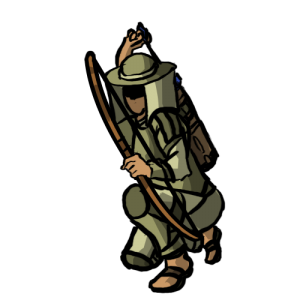 From the History of Loss and Hope, by Llanawi Puresoul of the Halls of Care, Chief Physician of the Office For Cleansing.
From the History of Loss and Hope, by Llanawi Puresoul of the Halls of Care, Chief Physician of the Office For Cleansing.
Far from the centre of the Sundering, it was not the fall of the mountains or a rain of fire from the skies that slew the ancestors of the Llwcharion. Their fall was more pathetic.
Of course, their great palaces toppled in earthquakes. Of course their forests and fields were set aflame. Many were crushed and burned as elsewhere. But far from the centre of the maelstrom, many survived that great cataclysm.
The pain continued for a generation. With the great palaces fallen, who could keep order? With the Orc armies killed or scattered or preying upon the other survivors, who would protect the people? With the fields burned, where would food be found? It is always remembered that the Sundering destroyed forests and mountains. What hurt these Elves the most, was that it destroyed the web of farming, production, trade and administration on which they depended.
Millions starved, some were slain by rampaging brigands, many fell to illnesses which ravaged the weakened population. Many survivors huddled in ruined cities, hoping absurdly that civilisation would somehow rebuild itself, and perished as diseases spread amongst them. Others headed towards the traditional sources of their food, the farms and orchards, but these were burned and ruined, and such people starved even as the first shoots of growth appeared. Some stockpiled what they could find and barricaded themselves into fortified places, but these simply became targets for Orc marauders and human bandits.
What saved the Llwcharion, was intelligent cowardice. They fled.
The Llwcharion made for the northern deserts. Here, with resourcefulness and geomantic magics they coaxed a little food from the desert. Nobody troubled them in this desolate land: no Orc warbands would brave the barren heat and drought of the place. They soon learned to live, and then learned to thrive.
Yet their history has twisted them. No longer do they hope to make a better world. They hope only to survive. No longer do they seek the soft beauty of woodland glades, but revel in the barren desert. It is said that when they cry they weep tears of dust, but it is more likely that they simply do not cry.
Their achievements in surviving are worthy of admiration. And they have developed an impressive range of skills. The secret magics that coax food from the desert are remarkable. Their torturers are highly skilled, and we of the Argiri have made good use of these craftsmen. But they have forgotten, in their hearts, what it is to be an Elf, to be the highest of mortal creatures, uniquely able to rebuild civilization.
In short, for all their cleverness, they are little better than mere humans.
